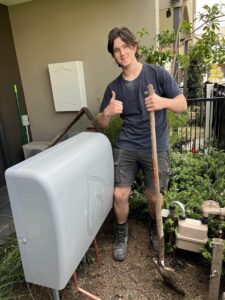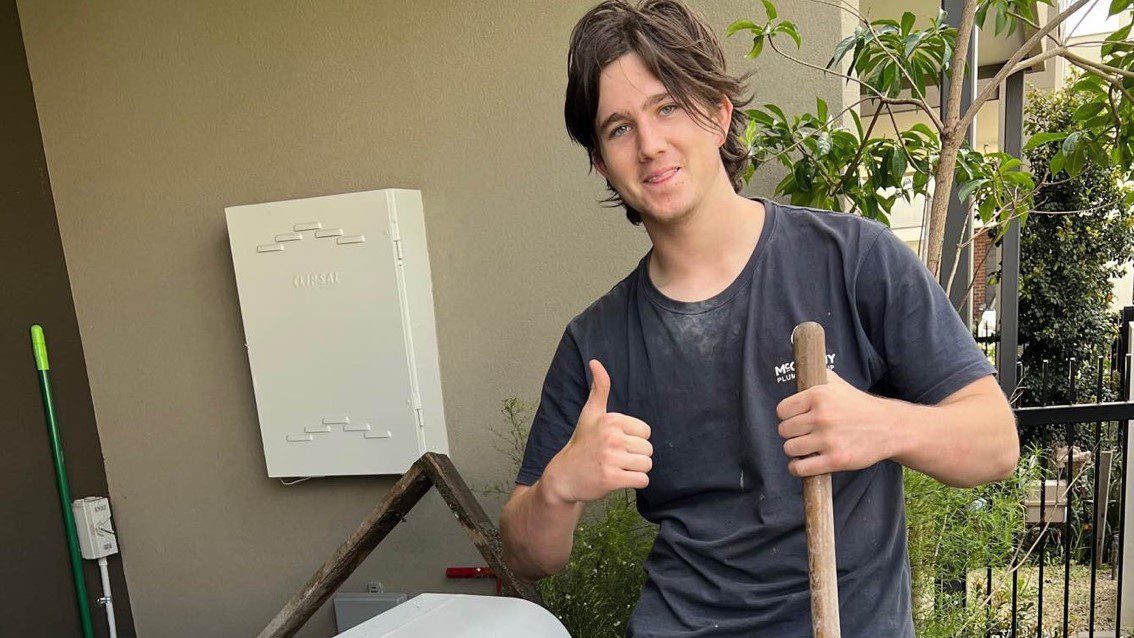What is a Home Water Filtration System and What Are the Benefits?
Clean Water vs Pure Water
Last week, Melbourne was crowned Australia’s best city for tap water. The title was judged by the Water Industry Operators Australia and the prize is based on colour, clarity, odour and taste. By all reports, it tasted delicious! But just because tap water tastes good, and is clean, does that mean it is pure?
All of Melbourne’s Water undergoes treatment if it is sourced from unprotected catchments. This involves filtration and disinfection. Water is disinfected at the point where it enters the supply system, and again at specified points along the delivery system (Greater Western Water, 2022). Greater Western Water’s Drinking Water Quality Report, 2021-22 states that our city’s water undergoes the following water treatment processes:
- Fluoridation; Adding fluorosilicic acid (as per Fluoridation Act 1973)
- Chemical Treatment and Disinfection; by Chlorination, and a second chlorine dosing (using liquid sodium hypochlorite) in four locations, including our Werribee catchment.
- pH Correction; Little River water supply is dosed with gaseous carbon dioxide
- Other filtration activities in certain catchments; Coagulation and flocculation for clarification, sand filtration, drum screen filtration, dual media pressure filters, cartridge filters, reverse osmosis, remineralisation, sludge handling, dissolved air flotation, oxidation, absorption coagulation
- Other added substances in certain catchments; polymer alum, lime, ferric sulphate/ sulphuric acid/polydadmac, antiscalant, sodium hydroxide, sodium bisulfite, membrane cleaning, chemicals (caustic, detergent, acid), hydrated lime, carbon dioxide, chlorine gas, aluminium chlorihydrate, polyelectrolyte, sodium hydroxide (caustic soda), potassium permanganate, powdered activated carbon, sodium hypochlorite sodium, flurosilicic acid, sodium hexafluorosilicate, aqueous ammonia sodium, aluminium sulphate and sodium carbonate (soda ash).
Greater Western Water state that the purpose of the above is to take a preventative measures and multiple barrier risk management approach.
We’re Melbourne plumbers, and it is our mission to ensure Melburnians have access to safe drinking water in order to prevent waterborne diseases; plumbing plays a vital role in protecting public health. We are also cognizant of the difference between clean treated water, and pure filtered water. Reading a list of the added substances above (detergent anyone?!) sounds more like what you’d read on the side of a can of Coca-Cola, rather than straight from the tap. The reason for this is completely understandable, they need to keep their pipes clean in order to deliver water to you disease-free.
For the general population, tap water is perfectly fine to drink, cook, clean and bathe in. But we’ll go into detail below some of the problems that can occur with treated tap water, and how whole home water filtration systems can help in solving these.

Types of Water Problems
Choice Australia has conducted research, in conjunction with Sydney Water, to determine the 5 most common contaminants in Australian tap water:
- Stained plumbing/clothes. Likely caused by iron, manganese, copper.
- Red/Brown slime in water pipes – Caused by Bacteria feeding on Iron
- Discolouration of water – Turbidity (cloudy water) from hydrogen sulphide, iron, manganese, humic and tannic acids
- Unusual colour or taste – caused by Hydrogen sulphide, low pH, iron, zinc, copper, lead, total dissolved solids, chloride, bacteria or algae, chlorine, paint soaking into plastic piping
- Corrosive Water – likely caused by pH, copper, lead
Greater Western Water, our local water authority, has the task of ensuring water is treated enough to not be a risk to public health, but not treated too much to cause other problems to the end consumer.
Many people who are concerned about the processes of water treatment often opt for filtered water, or drinking water from water bottles. The following highlights what whole house water filtration systems are, and what benefits they can deliver to the end user.
What is a Home Water Filtration System?
There are many options on the market, but we consider those from Complete Home Filtration to be the jewel in the crown of the water filtration market. They are Australia’s most awarded water filter, including winning a Telstra Best of Business Awards Winner in 2022.
Essentially, a complete home water filtration is more than a kitchen mixer tap water filter; it filters all water entering your home for showering, drinking, washing etc by removing unwanted particles, chemicals and pollutants out of the water. Systems range in price from a simple reverse osmosis system (≈$1,000) to a whole house system (≈$6,000).
The benefits of removing chemicals, such as chlorine, out of your water once it enters your home are discussed below.
Health
Allergies are more prevalent in modern society, mainly due to pollution, dietary changes and less exposure to microbes. One such allergy is cercarial dermatitis, or chlorine rash. Symptoms of this allergy include an itchy, red rash, scaling of skin, small hives and swollen/tender skin. A frustrating allergy for someone to have as it can flare each time they shower due to the levels of chlorine in a municipal water supply.
Chlorine is a natural element compared to bleach, however, is used to treat and disinfect (and is a main active ingredient in bleach) thus likely to irritate those with skin sensitivities.
Chlorine often causes people to have lung irritations, and in extreme cases those with sensitivity to chlorine can feel unwell just breathing in shower vapour.
I’m getting controversial here, but chlorine has actually been linked to cancer and has been considered a carcinogen. Having a family member recently diagnosed with a Gastrointestinal Carcinoid, I’ve been researching causes. The World Journal of Gastrointestinal Oncology stated in 2016 that “published reports have revealed increased risk of colorectal cancers in people exposed to drinking water or chemical derivatives of chlorination” (World J Gastrointest Oncol. 2016 Apr 15; 8(4): 402–409). I should note this is a peer reviewed journal, not a subreddit of conspiracy theorists (I do love them though).
Skin and Hair
My 40’s are coming for me as fast as the Snowpiercer train is perpetually lapping the globe at top speed (IYKYK). For the first time in my life I’m beginning to consider buying blood-of-a-virgin anti-wrinkle cream, not just the nivea face + body + pets. I’m finding my skin so dry and irritated when I exit the shower and I’m certain it’s not due to the volcanic water temperature…
Chlorine is a contributing factor in drying out your skin after you shower. It strips away your essential oils and opens these pores up, causing your skin to dry out. It causes itchiness and dryness and can trigger eczema.
Along with my skin ageing, my hair is becoming less of an ochre brown and more of a dusty silver… so I visit Thomas and his team at UNIK Hair Design in Point Cook to give me a paint job every now and again. Chlorine can strip dyed hair of colour, and dry it out, so many home filtration users enjoy its beauty benefits along with its health benefits.
Appliances
Water hardness refers to calcium and magnesium, amongst other minerals, in our water. If water is too ‘hard’ if it has higher than usual amounts of these minerals in the supply.
If not filtered out, these minerals cause deposits on appliances when water is heated (such as calcium on showerheads, in kettles and on coffee machines. Hard water means more soap and detergent is used for washing and cleaning, as its harder to lather.
Environment
Finally, home water filtration systems void the use of bottled water and thus reduce plastic pollution and fossil fuel consumption. If reducing your carbon footprint is important to you, and you’d like pure water without using plastic water bottles, whole house water filtration could be an option for you.
Installing a whole house water filtration system
If you’re interested in discussing the benefits of investing in a home water filtration system (which needs to be installed by a licensed plumber) get in touch with us on 9931 0905.

